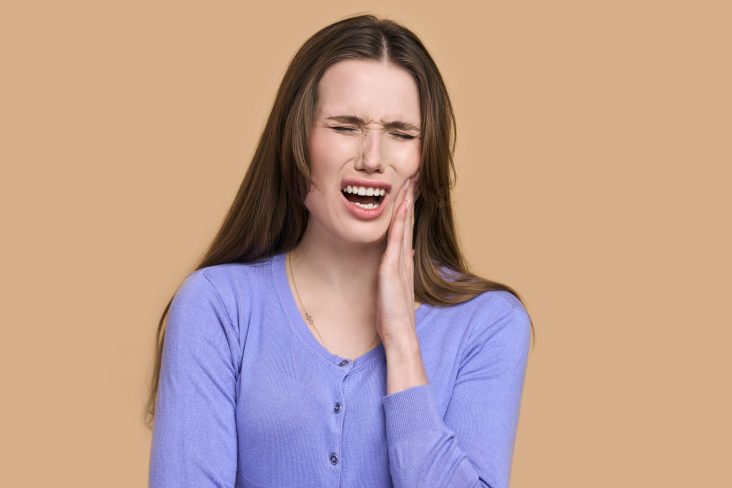Dental emergencies are never fun. Whether you’re experiencing an intense toothache or have sustained dental trauma, chances are you’ll need professional intervention sooner rather than later. If a dental emergency falls outside of standard operating hours, that’s where an after-hours emergency dentist comes in. If you’re currently in the throes of a dental emergency — or you’re waiting for your appointment — here are some tips and tricks to keep yourself comfortable in the meantime.
Emergency Dentistry: How It Can Save Your Teeth & Your Health
Immediate First-Aid Measures & Minimising Discomfort While Waiting
If you’ve encountered a dental emergency, don’t panic. Your first port of call is to employ immediate first–aid measures, such as applying a clean gauze to the site of injury and biting down to secure it in place — this should help control the bleeding. If you have someone handy who can do this part for you, it may be better to delegate the task to them. If you have no gauze available, tissues or tea bags can also help absorb the blood. Always ensure to apply firm pressure to the wound or tooth socket.
If there’s no blood involved, immediate first–aid measures can be a simple case of finding a cold press, cold towel, ice pack or bag of frozen vegetables — and holding it to the site of the pain. Rinsing your mouth with salty, warm — i.e. neither hot nor cold — water can assist in minimising discomfort while waiting. You may also wish to ingest some pain relievers, such as paracetamol or ibuprofen.
Navigating Dental Trauma
If you’ve dislodged a tooth and wish to integrate it back into the mouth, you should place it in its socket and try to hold it in place. On the other hand, if a child gets their tooth knocked out and requires a children’s dentist for emergency services, ensure they don’t hold a deciduous (baby) tooth in place like this, lest they compromise the growth of the permanent tooth that’s forming beneath the gums.
If you’ve broken your tooth into bits, ensure to collect the fragments as best you can and carry them in a glass or container of milk. Whether you’ve damaged a tooth or knocked it clean out, you must see a dentist within two hours if you wish to restore it in your mouth.
Initiating Communication With Emergency Dental Services
Shortly following these immediate first–aid measures, you — or, ideally, someone close — should initiate communication with emergency dental services. Usually, this involves picking up the phone and calling a clinic that will take emergency appointments — or an after–hour emergency dentist, if the emergency occurs at an obscure time of day. If you’re booking your appointment at Abbotsford Dental, you have the option of booking an emergency appointment online. Head over to our online booking portal, find the drop-down menu beside ‘Reason’, and hit ‘Emergency’ before booking a time.
Documentation & Information Gathering
Before heading to your emergency appointment, you should gather whatever documentation or information you deem necessary for the dentist to read. For instance, your medical records may help the dentist decide which treatments to administer or avoid, as they may contain crucial information about existing medical conditions, current medications, allergies or dental treatments received in the past. You should also provide details of your current emergency contact so that they can maintain communication with emergency dental services if required.
Follow-Up Care & Preventative Measures
Following your appointment, the dentist may provide follow-up care instructions and advise preventative measures for moving forward. Perhaps the most common recommendation is to adopt a temporary diet of liquid or soft foods — but whether you receive this advice will depend on the nature of your dental emergency. If your dentist recommends a soft food diet for the following days, you should eat foods such as soup, smoothies, mashed potato, yoghurt, jelly, or even baby food (if you can stomach it). Avoid all things crunchy, such as nuts, seeds, chips, popcorn or toast.
It’s also possible that your dentist may remind you about best-practice home dental care: brushing at least twice per day and flossing at least once per day. When it comes to post-procedure pain, dentists may parrot the advice discussed earlier about rinsing the mouth with warm, salty water or taking over-the-counter paracetamol or ibuprofen. Of course, if the dentist recommends follow-up appointments following the emergency, you should schedule and attend these as per their instructions. Follow-up appointments can be an important preventative measure — or, at least, a great way to confirm that the worst has passed.
If your emergency involved trauma, it may be wise to enquire about mouthguards — especially if you play contact sports. To prevent further dental damage — be it from injury or grinding — ask your dentist about customised mouthguards or nightguards.
Abbotsford Dental to the Rescue
If you require communication with emergency dental services, why not contact an emergency Richmond dentist that has your back? Whether you live in the heart of Melbourne or in the inner city, Abbotsford Dental is the after–hours emergency dentist you can count on. If it’s urgent, call us on (03) 9410 1077 or log your emergency on our online booking portal. We can perform the emergency work you need — and keep a cool head in a crisis.
 201 Nicholson Street Abbotsford VIC 3067
201 Nicholson Street Abbotsford VIC 3067
